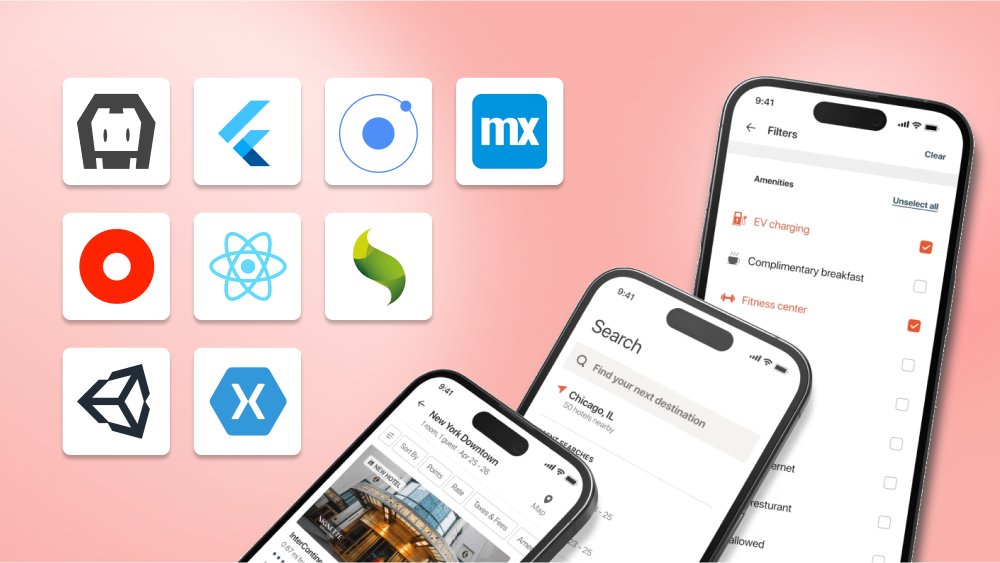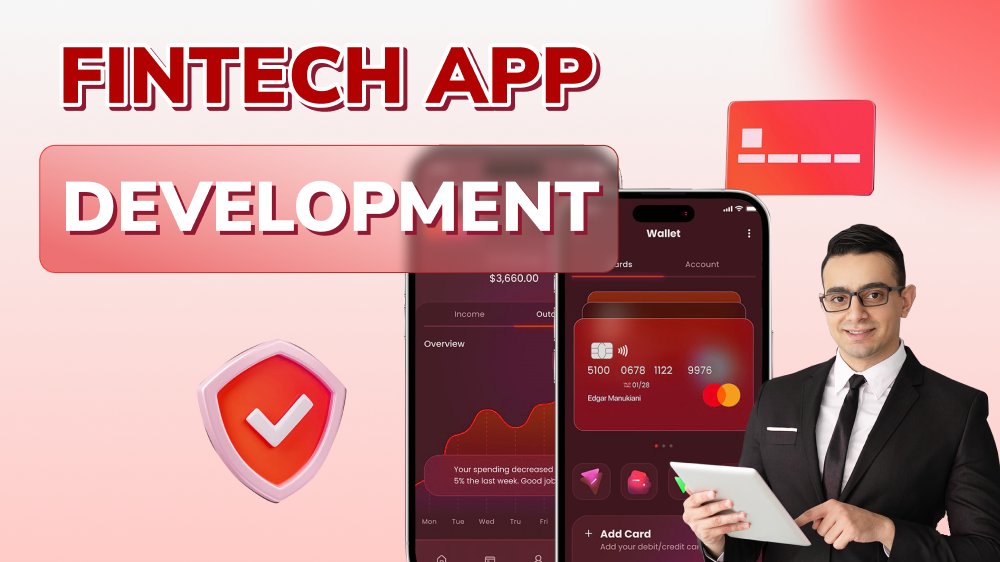9 Benefits of Mobile Apps for Enhancing Business Growth and Customer Experience
Mobile apps are the magnets that pull businesses closer to customers, boosting customer satisfaction levels and meeting their changing needs and expectations. Mobile apps support the customer-centric approach and in the long run, have the power to improve a business’s bottom line.

Content Map
More chaptersIn the digital age, most smart devices and applications can help us perform mundane tasks one way or the other. Be it entertainment, placing a reservation, replying to an important work email, or chatting with a friend – almost everything and anything can be done on a smartphone, tablet, or laptop.
Today’s article, however, would like to zoom in on the use of mobile phones and mobile apps. With billions of mobile users globally, it goes without saying that businesses are missing out if they don’t tap into the mobile app market. An average user spends around four hours and 37 minutes each day on their mobile screens. With around 6 to 7 billion phone users globally, the potential of mobile apps is massive - and so are its benefits. We will tap into every mobile app benefit and why businesses should put serious considerations into building one for them or at least make plans to build one in the near future.
Key Takeaways:
- Mobile apps offer substantial long-term benefits in driving customer engagement, loyalty, and satisfaction. This leads to stronger business performance, boosting the bottom line and reducing marketing costs over time.
- Mobile apps are essential to brand ambassadors that provide a smooth and frictionless experience, especially when compared to desktop experiences.

Customers Having 24/7 Access to the Business
Digital accessibility is a must in the modern technological landscape. While brick-and-mortar stores are only open during certain hours at certain locations, the digital accessibility of mobile apps is easy and convenient. No longer restricted by time and location, customers can view your products and services anytime, anywhere.
One might argue that a website can provide just as much digital accessibility, so why waste time and effort on mobile app development? The answer is simple: Convenience. Smartphones are inherently mobile. Instead of opening a browser, typing in the brand or product, then choosing a search result and clicking through several web pages to find the product – customers simply need to tap on the mobile app, and all the information they need is ready for access. Some mobile apps don’t even need Internet access. All in all, a company’s mobile app is a reliable source that a customer can turn to time and time again.
Build Stronger Connections with Customers
We are becoming increasingly attached to our phones. Statistics have shown that Americans check their phones 144 times a day. It makes sense that one of the top mobile features is push notifications—you can stay connected to your customers at all times. Your business frequently stays at the top of your customers’ minds throughout. The notifications also encourage customers to engage with the brand.
However, a user might receive up to hundreds of notifications a day. Brands need to be smart with how they use notifications and establish valuable emotional connections.

Enhanced Customer Engagement
As you’ll come to see later in this article, most of these benefits go hand in hand. Building strong connections with customers’ needs strong user engagement – a foundation for building solid, long-term customer relationships.
Users who download the mobile app are likely already part of the business’s target customer, establishing a deep relationship from the start. Users are therefore more inclined to interact with the brand, especially as mobile apps simplify communication and make communication seamless.
To boost customer engagement, you must think of ways to engage your customers from the beginning of the user journey to the very end. The onboarding flow should be easy and efficient; the app experience should be personalized, gamify aspects of their experience, if possible (e.g., letting friends compete with one another), and encourage them to create a wish list or join a community that’s exclusively on your app. You don’t need to follow every engagement strategy; just choose one that works best for your business. Keep in mind that apps with highly engaged customers are 2.2 more likely to increase their market share.

Efficient and Low-Cost Marketing Tool
Mobile apps are not just a means to keep up with the technological tide, they’re a means to ride it, propelling your company forward. They offer two key marketing advantages, stronger brand recognition and ultra-personalized marketing tool.
Stronger Brand Recognition
Your mobile app is your brand ambassador. A brand ambassador’s role is to reinforce brand identity, meaning your company’s appearance, story, value, and history. This can be done via a brand’s consistent color scheme, logo, tagline, promotions, etc. The result? Your organization builds a solid reputation, a sense of trust and familiarity, and a stronger brand value, all while standing apart from your competition. In the long run, you can also enjoy a higher advertisement effect and positive word-of-mouth.
Ultra-personalized Marketing Tool
91% of consumers are more inclined to purchase from businesses that recognize, recall, and offer them relevant deals and recommendations, according to Accenture Interactive’s 2018 Personalisation Pulse Check. Salesforce State of the Connected Customer Report noted that as technology continues to advance, 76% of customers expect better customization, and another 65% expect companies to adapt to their changing needs and preferences. Not many businesses seem to be able to match these expectations, however.
Personalized marketing means tailoring the brand experience to customer’s needs, preferences, and interests. By providing relevant customer experience, you enhance customer engagement, loyalty, and retention.
For instance, a retail mobile app might leave a strong impression by mixing and matching clothing suggestions based on the customer’s preferences and past purchases. A food delivery app might simply use location data to suggest the nearest store with discounts or locations.

Improve Customer Loyalty
Mobile apps are an effective tool in improving customer loyalty. A 2020 study by McKinsey reported that members of a loyalty program are 59% more likely to choose the brand over others, and 43% are also more likely to make weekly repeat purchases. Furthermore, loyal customers are likelier to recommend a brand to their friends or family. Let’s say you want to buy a new detergent. You’re probably going to ask your mom or close friends to recommend some brands they trust. Word-of-mouth is one of the most effective marketing strategies, and loyal customers are the best way for you to achieve it.
Make sure that participation in your loyalty program is easy and convenient. Track your customer purchases and behaviors and personalize their tangible rewards accordingly. Don’t forget to encourage further participation with email marketing or social media!
Boost Competitiveness Through Customer-Centric Innovation
As you focus on enhancing the customer experience and building relationships through existing app features, don’t forget to keep an eye out for opportunities to innovate and introduce new, engaging features. In today’s competitive landscape, standing still means getting left behind.
More than a convenient tool to access your products or services, what else does the app offer? What mobile app features are unique to your organization? How do you make the customer’s experience even more seamless and frictionless? Can you gamify certain experiences? For example, “Zombies, Run!” is a fitness app where users listen to storyline broadcasts and zombie chases interspersed, adding suspense and motivation to keep moving.
Streamlined Operations and Boost Business Efficiency

Customer expectations are changing constantly at an extraordinary pace. Businesses need to improve not only the app itself but also operation efficiency to meet changing market demands.
Teams are encouraged to innovate and work smarter. For example, they might learn to embrace the agile methodology for more flexibility and adaptability. Other teams might look for new methods to automate repetitive tasks or more productive data analytics methods to understand the captured data. Teams are also encouraged to make more data-driven, confident decisions while focusing on core competencies, meaning they might need to outsource to maximize value.
Gain Valuable Customer Insight

While the mobile app serves as a brand ambassador and tool to communicate directly to costumes, it also captures a great deal of data. This data, in turn, can be used for rich analytics to understand customer’s behaviors and preferences. From there, businesses improve features, personalize communication and rewards, and improve customer engagement and loyalty programs.
With specialized industries like healthcare, capturing data isn’t simply for marketing and monitoring. It also gives valuable insight into a customer’s specific health metrics and progress. Keeping track of the data allows health professionals to act promptly should medical intervention be needed.
As valuable as customer data is, you need to be aware of security and data privacy policies. Implement robust security measures like multi-factor authentication and data encryption. Be transparent with your users about the data you collect and comply with industry standards and regulations like HIPPA or GDPR.
Increased Profits

Mobile applications can bring in significant streams of income. To start, mobile apps are convenient and offer an easy buying experience, which brings in more purchases. 54% of complete mobile payments are done via dedicated mobile commerce apps, as they are the preferred way to do online shopping. In addition to in-app purchases, other popular monetization strategies businesses might consider involve placing ads, offering subscription programs or premium features for paid users, or affiliate marketing. Affiliate marketing allows businesses to expand their reach by leveraging partnerships and user-generated content to promote products while driving engagement.
Why Build a Mobile App If I Already Have a Website?
Every business should have a website; this is true. Even then, we still recommend you build your own mobile app. Mobile apps are generally more convenient – not every user is willing to open a web browser every time they want information. With a mobile app, one or two simple taps would bring users the same result much faster and more efficiently. Let’s take banking apps, for example. A banking website certainly saves customers a trip to a bank, but a mobile banking app makes money transfer and balance tracking much easier and more efficient.
Another thing mobile apps do better than websites is the implementation of personalized, cost-effective and efficient mobile marketing strategies.
Maximizing the Benefits of Mobile App Development

Building a mobile app is no longer a must; it has become a must for businesses who wish to succeed in today’s ever-changing digital landscape. Building the app is only the first step, however. To truly succeed, you need efficient mobile app strategies to ensure customer satisfaction and business growth. Challenges like data privacy, lengthy development timelines, or technical expertise might require you to put careful thought into the mobile development project.
With the right partner, you can overcome all these obstacles easily. If you are ready to reap the benefits of a well-executed mobile app strategy, reach out to Orient Software. We are happy to provide you with a free quote within three business days!







